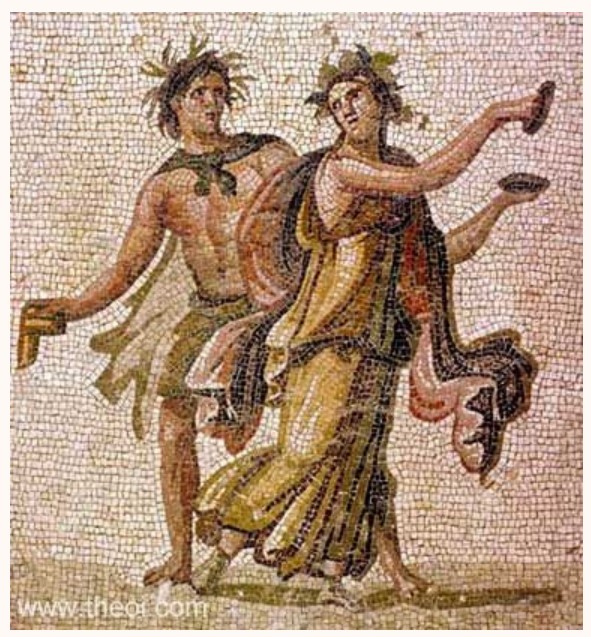“You’ve had enough” he said, as he pushed her glass away. “You’ve had enough” he said, with a tone so dismissive and disapproving that I looked up from my book and glared across the room, judging this man I had never met in a marriage I had no knowledge of in a room full of strangers.
“You’ve had enough.” She’d had one glass of champagne.
Every week, I try to make my blog posts an honest representation of what’s on my mind at the time. Mostly that means something which has been sparked during a tutoring session, an observation I have made during several similar sessions or some work that a client seems to have found particularly helpful. This week, following a weekend away in North Yorkshire, a passing encounter with another couple has been playing on my mind ever since.
Maybe his wife had a history of truly outrageous behaviour in public. Maybe she had a history of drinking too much. Maybe she had a health condition that meant more than one tiny glass of champagne was a seriously bad idea, and he was just looking out for her. Maybe. Maybe. But I doubt it.
How many times have I heard a man asserting his control over a woman’s behaviour, done with such decisiveness, such easy self-confidence, such surety that they have the right to impose their will upon a woman? I’m afraid it’s one gigantic trigger for me and makes me want to grab the bottle and drain it before marching to the bar to order a second: ordered, I might add, on my own account, bought with my own money and poured recklessly down my own neck. I might end up with the hangover from hell, but at least it would be on my own terms and be my own stupid choice.
Mary Beard has written and spoken with brilliant clarity about how the voice of women has been controlled, manipulated and erased by men throughout western culture and traces its origins right back to the earliest works we have. As she points out, it is in the very first book of Homer’s Odyssey, one of the two oldest works of western literature in our possession, that we are treated to the first ever recorded example of a man telling a woman to shut up. Telemachus, the teenaged son of the absent Odysseus, speaks to his mother (who is ruler in her husband’s absence and managing rather magnificently – for a woman) and he tells her: “go back upstairs and resume your own work – the spinning and weaving; speech is the business of men, all men, and of me most of all; for mine is the power in this household.” Okay. Right you are, son.
Professor Beard cites various texts to illustrate her point that the silencing and dismissing of women’s voices was par for the course in the ancient world (and indeed is par for the course with depressing frequency in the modern one). She points out that in Aristophanes’ Lysistrata, the satirical joke behind the entire play was that the men of Athens were doing such a God-awful job of running the state that even the women could manage it better. She also examines how women are silenced in Ovid’s Metamorphoses, through transformation into dumb animals incapable of diction. She explores in some depth how oracy was not only considered a man’s domain but indeed defined masculinity itself at its most sophisticated; fine rhetoric was the demonstration, the exercise and the definition of power.
Yet it is not just the oratorical and political silencing of women that has been playing on my mind since I overheard the disapproving Yorkshireman policing his wife’s alcohol intake. Disapproval of this kind so often has its origins in fear – fear of “making a scene” or “a show of oneself” and I find myself reminded of how frightened men in the ancient world were of their women losing control. Witness the moral panic documented in Roman sources at the supposed rise in popularity of cults in which women allegedly lost control and gave in to their baser desires. The Romans in particular seemed to find excessive emotions or hedonism genuinely horrifying when it was expressed by women or, indeed, in a manner which they simply considered to be “feminine”. So the Roman state clamped down hard on these cults.

Addressing the manner in which women are portrayed in the ancient world is of crucial importance and something I have never shied away from. I cannot without comment take students through a passage of Latin which mentions the handing over of women as part of a peace deal, the assignation of female prisoners to men as a reward, or the supposed magnanimity of the general who lets a particular woman off the expectation of becoming his personal slave because she is betrothed to somebody important. Students are usually interested to talk about the content of such passages and it is an important opportunity to remind them of the differences between ancient society and our modern expectations.
Yet in that little bar in North Yorkshire, just for a little while, I could not help but find myself wondering just how far we have come after all, when a man can so clearly and so publicly disapprove of his wife maybe enjoying herself just a little bit more than usual.
I thought this was really thought provoking. Have things changed? Is misogyny just bullying (ie not the only form). I think we’ve made progress but it’s not uniform or linear…or perfect
Agree that progress is non-linear and imperfect. Not sure I can agree that misogyny is merely one form of bullying; I think it runs much deeper than that.